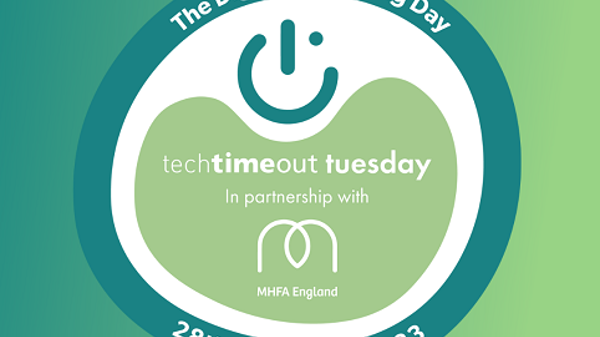Time to Talk Day: the Power of a Conversation
Reflections on why Time to Talk Day is so important—it’s a reminder of the power of conversation and the difference a chat can make.
As a media volunteer for the mental health charity, Mind, one of the things I try to do is start conversations about mental health. I speak from personal experience when I say that talking about mental health can be incredibly powerful. That’s why Time to Talk Day is so important—it’s a reminder of the power of conversation and the difference a chat can make.
For a long time, I felt like I had to keep my struggles to myself. Whether it was anxiety, depression or symptoms of post-traumatic stress disorder, I’ve experienced the feeling of being scared to talk about my mental health and not wanting to burden others. I thought I would be seen as weak and unreliable and really feared judgment. It was a huge weight to carry around with me all the time.
For me, talking about my mental health has been so helpful. When I was going through some of my darkest times, I called Mind’s Infoline which helped me immensely. It showed me how powerful it was to seek help and open up about my struggles. The lack of judgment gave me a bit of confidence and bit by bit, I started to talk about my mental health with friends and family. Those early conversations set down the foundations for me talking openly about my mental health. It still isn’t always easy to talk about what I might be feeling. Exercise and running in particular have also helped me manage my mental health but it was the conversations with others that truly helped me take those first few tentative steps forward.
At various points in my life, my mental health challenges have felt very isolating. At different times, my mental health has affected my work — when I’ve struggled, it’s been really difficult for me to concentrate, make decisions and maintain attention to detail. I’ve often felt overwhelmed and feared judgment.
For a long time, a lack of open conversations about mental health in the workplace made things worse. It’s certainly not the case now but I used to be afraid that talking about my mental health would ruin my career. It wasn’t until I started opening up and received support that I felt more able to manage my condition and rebuild my confidence. This is why having conversations, whether with colleagues, managers, or friends, can make a huge difference.
It’s not always easy to start a conversation about mental health but I thought it might be helpful to share a few ideas based on things that I’ve found helpful. It’s not intended to be a complete list and not everything will work all the time.
-
Read between the lines – Are you seeing signs that someone is struggling? If so, think about how best to approach that person.
-
Ask and really listen to the answers – A simple “How are you?” followed up with clear signs that you are really listening, can open the door for someone to share how they’re feeling. If they say “I’m fine”, think about asking again along the lines of “how are you really?”
-
Share your own experiences – If you feel comfortable, talking about your own mental health can encourage others to open up. I’ve found sharing a bit about my own feelings or mental health can almost “give permission” for someone else to share.
-
Choose the right setting – Some of the best conversations I’ve had about mental health have been when I’ve been out for a walk with a friend or when we’ve been at the rugby or cricket. Having a distraction might make it easier for someone to say how they’re feeling.
-
Don’t feel that you have to give advice – When I’ve spoken about my menta health with a friend, I haven’t necessarily been looking for advice. I just wanted to be listened to and heard.
-
Remind them they’re not alone – My experiences of struggling with my mental health often left me feeling really isolated. Knowing that I am supported and that someone is prepared to just stand by my side, without judgment, is very comforting and reassuring.
Time to Talk Day is so important. Every conversation about mental health has the potential to help someone who is struggling and helps to reduce stigma. It doesn’t matter whether you’re checking in with a friend, supporting a colleague, or even just acknowledging your own struggles. My own experiences tell me that these conversations can lay the foundations for someone to seek help and create lasting change.
Pete is LawNet’s Learning & Quality Director. He started his career as a solicitor before moving into legal education and professional development.








